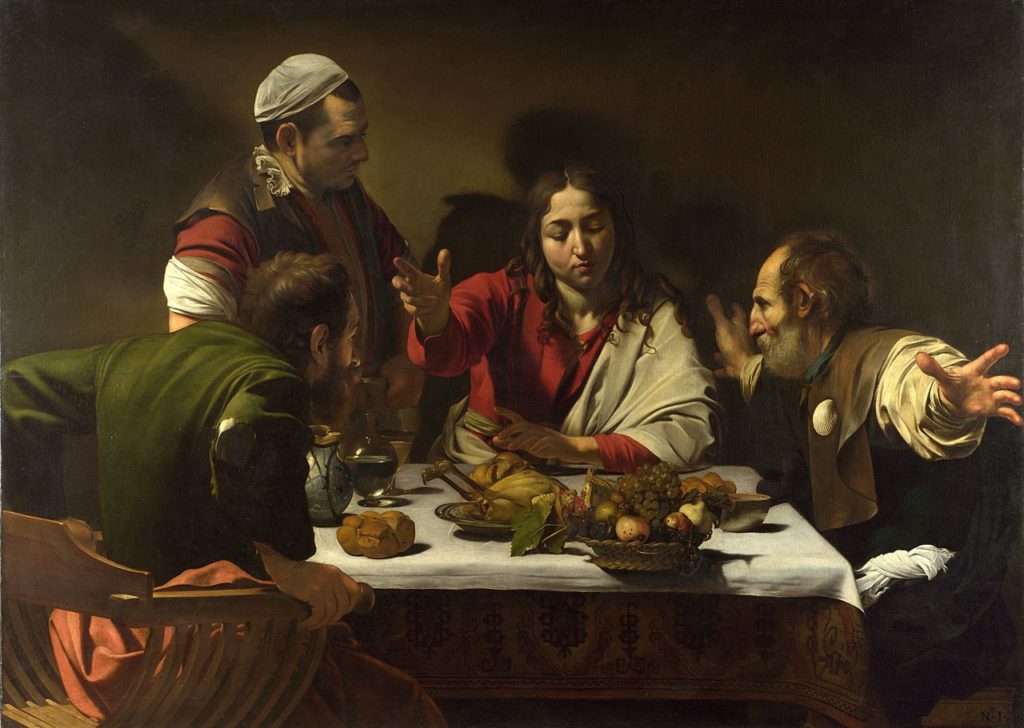“Come, have breakfast.” | June 5, 2021 Essay

Have you ever noticed how many of the gospel accounts have Jesus in someone’s home having a meal? New Testament scholar Robert Karris says that in Luke’s gospel Jesus is either going to a meal, at a meal, or coming from a meal! So much so that his enemies accuse him of being “a glutton and a drunkard”.
One of the best-known accounts of these meal sharings occurs on the day of his resurrection. Luke writes that Jesus joined two of his disciples as they were walking to a village called Emmaus, seven miles from Jerusalem. They fail to recognize him during the time he walks and talks with them until they stop at the end of the day and sit down to supper. He takes some bread, blesses it, breaks it, and hands it to them. Only then do they recognize him but he vanishes from their sight. Immediately they return to Jerusalem to report to the eleven apostles what had happened. While they are telling their story, Jesus suddenly appears to the group and asks if they have anything to eat. The gospel says they offer him a piece of grilled fish which he took and ate before their eyes.
Why do you suppose many of the post-resurrection appearances involve a meal? For one thing, by sharing food with them Jesus wants to make the resurrection more believable. He wants to show that he is truly alive, that he is not a ghost, and that he is the same Jesus he always was. He had shared so many meals with them, including supper the night before he died, and he resumes that same practice now that he has risen.
Consider the implications of sitting down to share dinner with someone. A shared meal allows you to go beyond just a surface knowledge of someone. It allows you to go deeper. Consider the meal Jesus shared with Zacchaeus in Luke 19. After his initial interaction with Zacchaeus, Jesus invites himself to Zacchaeus’ home for supper. We can reasonably presume that during that time, Jesus delved deeper with him through the conversation afforded by their shared meal. This deeper level of intimacy led Zacchaeus to a significant life change.
Jesus left us with the great sacrament of the Eucharist, his unique and real presence, not just a reminder of that presence. He comes to us in the Eucharist to engage with us, to interact and connect with us. No act in our material existence is so close to us, or enters so intimately into our bodily life, as eating and drinking.
Our Lord chose this marvelous way of being brought into the closest and most interior union with us.
Whenever we come to the Eucharist, we might well consider the scene in John’s Gospel when seven of the disciples land their fishing boat on the shore of the Sea of Galilee. The risen Lord is standing on the shore waiting for them. The text reads: “When they climbed out on shore, they saw a charcoal fire with fish on it and bread.” Then Jesus says to them: “Come, have breakfast.” Picture that scene and you understand what we are doing at every Mass.
– Fr. William J. Bergen, S.J., Senior Priest
